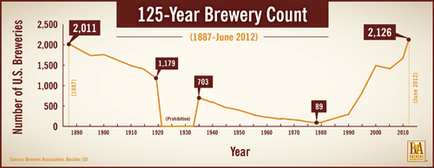moviebrain
Well-Known Member
I had a Redhook Longhammer and Stone IPA recently and they didn't taste anything like they used to.
InBev isn't the only company that looks at profit margins and tries to cut costs where they can.
I could see Stone IPA changing simply because they continually need to find complementary blends of slightly different hops since that is such a large component of that recipe.
Redhook, on the other hand, is part of the same small brewing conglomerate that Goose Island used to belong to (along with Widmer Bros and Kona brewing) Craft Brewers Alliance. I'm sure they're taking notes on how to maximize profits as well. When I last visited the Seattle Redhook brewery they were very proud of their new brewery "back east", but admitted that it would taste slightly different and as such would be packaged in slightly different bottles.
If you ask me, the process of blending and homogenizing the mass produced beer can only hurt the brand. Beer is EXTREMELY difficult to exactly replicate every time, and if your customers are willing to go months between purchases or the distributors take forever to sell through a batch then the changes are even more noticeable.
I don't agree with using lesser quality ingredients, I only mean to argue that making lots of delicately flavored beer with the same flavor consistently is one of those skills I'm constantly in awe of.








































![Craft A Brew - Safale BE-256 Yeast - Fermentis - Belgian Ale Dry Yeast - For Belgian & Strong Ales - Ingredients for Home Brewing - Beer Making Supplies - [3 Pack]](https://m.media-amazon.com/images/I/51bcKEwQmWL._SL500_.jpg)


















